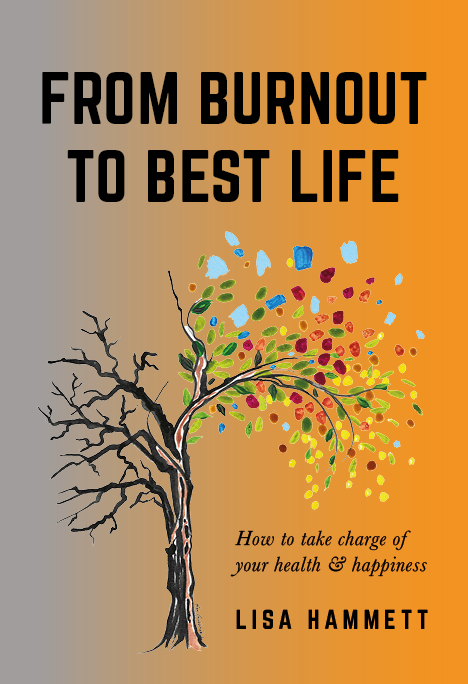
Cancer, a word that can send shivers down anyone’s spine, is a complex disease with numerous types and causes.
Among the various factors that contribute to the cause of cancer, researchers have been looking into chronic stress as a potential culprit. To make matters worse, a cancer diagnosis can be highly stressful and result in additional health problems or a worsening of cancer symptoms when rest and recuperation is crucial.
To help us dive into this topic, we’ve partnered with Mesothelioma Hope, an organization dedicated to supporting those diagnosed with mesothelioma, a rare and aggressive form of cancer.
Keep reading to learn more about chronic stress and cancer as well as ways families can cope and find the help they need.
Can Stress Cause Cancer?
Researchers have not yet come to an agreement whether stress is a direct cause of cancer or not. However, chronic stress can lead to a wide range of health problems. It can weaken the immune system, cause high blood pressure, and even lead to heart disease.
Some of the most notable health impacts of stress include:
- DNA damage: Chronic stress has been shown to have an impact on the DNA repair process, increasing the risk of mutations, which may encourage cancerous cell growth.
- Hormonal imbalance: Stress leads to the release of the hormone cortisol. While cortisol is crucial in our response to immediate threats, constant high levels can suppress the immune system, potentially enabling cancer cells to evade detection and spread.
- Lifestyle implications: Chronic stress can lead to unhealthy coping mechanisms, such as smoking, overeating, or alcohol consumption — all of which increase the risk of various cancers.
So while it is hard to determine a direct link between stress and cancer, it is evident that stress can play a detrimental role in our health.
Stress After a Cancer Diagnosis
Battling cancer is arguably the most stressful experience someone may ever go through. But the health impacts from chronic stress paired with cancer symptoms or treatment side effects can be debilitating.
In fact, the American Society of Clinical Oncology estimates that 25% of cancer patients deal with severe mental health struggles like depression and anxiety.
These can all make symptoms worse and treatment less effective, underlining the importance of stress management tools for patients and their families so they can keep fighting their illness and enjoy time with their loved ones.
The Unique Stress of Mesothelioma
Mesothelioma is a rare but aggressive form of cancer caused by asbestos exposure. A mesothelioma diagnosis can be stressful, given its association with occupational exposure and the complex legal actions surrounding asbestos-related claims.
In a study published in 2022 in Frontiers in Psychology, researchers detailed how psychological stress differs for those with mesothelioma.
Factors impacting mesothelioma patients’ stress levels include:
- Aggressive cancer progression
- Confusing legal process to access financial assistance for treatment
- Disruptive symptoms that make it difficult to go about daily activities
- Feelings of betrayal due to a beloved occupation or military service that exposed them to asbestos
- Short life expectancy after diagnosis
Only 3,000 people are diagnosed with mesothelioma each year, causing patients to feel isolated.
Asbestos exposure can also occur secondhand when a worker unknowingly carries asbestos dust home on their uniform, exposing their spouse or children. If this occurs, workers may also then grapple with additional stress caused by a sense of guilt.
This added stress can compound the physical and emotional toll on patients and their families.
Ways to Alleviate Stress: Mesothelioma Hope Is Here to Help
Those fighting cancer and their families do not have to manage everything alone.
You can try easing stress while dealing with cancer by:
- Attending mental health counseling
- Finding support groups of those battling the same type of cancer
- Incorporating meditation or light exercise into your routine
- Participating in creative activities like photography, painting, and more
- Reaching out to those around you and talking about what you’re going through
Mesothelioma Hope has compiled many of these resources for those fighting mesothelioma and their families. Whether by talking with a team of empathetic Patient Advocates for the best treatment options for them or by finding mesothelioma support groups, their team is prepared to help.
Remember, in the face of something as overwhelming as cancer, hope and support can make all the difference.
Sources
American Society of Clinical Oncology. “Depression.” Retrieved from: https://www.cancer.net/coping-with-cancer/managing-emotions/depression.
Mesothelioma Hope. “New Tool Measures Unique Mental Health Struggles of Mesothelioma Patients.” Retrieved from: https://www.mesotheliomahope.com/blog/measuring-mental-health-in-mesothelioma-patients/.
National Cancer Institute. “Stress and Cancer.” Retrieved from: https://www.cancer.gov/about-cancer/coping/feelings/stress-fact-sheet.






